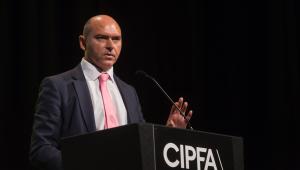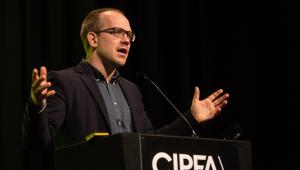Barbara Cassani, who was chair of the London Olympic bid committee from June 2003 to May 2004, told delegates that the capital’s bid started late compared their rivals to host the Games.
This meant those involved, including the Treasury, had to take bold decisions, she said. But this showed that “when the goal is virtually undoable, you have the opportunity to throw away the rule book”.
She added: “It was clear that London needed a plan that was riskier than others and we had to do things very, very fast. Everyone would have to step outside their comfort zone.
“The government would need to take risks – financial risks – that were an anathema to civil servants. I remember saying at one point to colleagues in the Treasury who were saying no [to some spending], that if we don’t do it, we won’t have a bid.”
Speaking in the conference’s final session, Cassani said the bid had also required local government to work at an increased pace as part of the eventually successful plans to stage the event in London’s East End.
“We went to local government colleagues and said we’d need planning decisions in a couple of months,” she said.
“When we decided to centre the games in the east end of London, it required a tremendous amount of imagination to put the Olympic Park and the stadium and complex and facilities [in that area]. The big benefit of the Olympic bid was that the level of regeneration was much higher than it would have been had it been any other project. It was a big vision.”
Cassani, who had previously founded low-cost airline Go Fly, said the backing of councils was key to ensuring that the bid was a success.
“The planning officers in the east end of London had a groundbreaking approach that cut years from our timetable. We secured permission for the Olympic Park in eleven months – without that we would have failed, we would have gone home.”




















